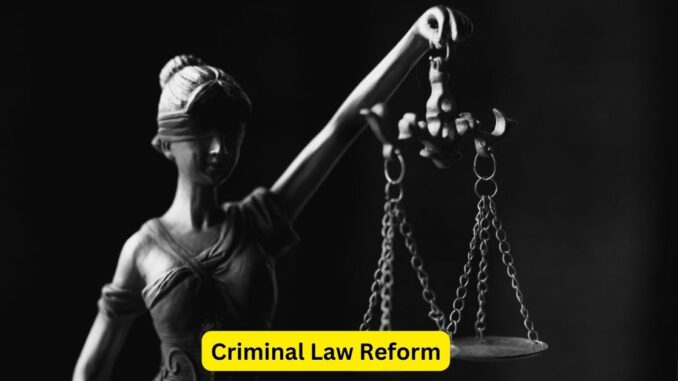
Criminal law reform stands at the forefront of societal evolution, aiming to create a fair, equitable, and just legal system that reflects the values of the community it serves. While significant progress has been made, numerous challenges persist, necessitating a thoughtful examination of existing practices and the exploration of innovative opportunities for improvement.
Challenges in Criminal Law Reform:
One of the most pressing challenges in criminal law reform is the issue of mass incarceration. Many countries, including the United States, grapple with disproportionately high incarceration rates, often due to stringent sentencing laws and non-violent offenses. Addressing this challenge involves reevaluating sentencing guidelines, emphasizing rehabilitation over punishment, and investing in alternative methods of addressing criminal behavior, such as drug courts and mental health programs.
Another challenge lies in addressing systemic inequalities within the criminal justice system. Racial and socioeconomic disparities persist, affecting marginalized communities disproportionately. Reform efforts must focus on eliminating racial profiling, bias in sentencing, and disparities in access to legal representation. It is essential to create policies that promote fairness and equality for all individuals, regardless of their background or socioeconomic status.
Additionally, the reintegration of ex-convicts into society poses a significant challenge. Former inmates face obstacles such as limited job opportunities, housing discrimination, and social stigma, which can hinder their successful reintegration into communities. Criminal law reform should prioritize initiatives that support reentry programs, provide education and job training, and facilitate access to mental health and substance abuse treatment to reduce recidivism rates.
Opportunities in Criminal Law Reform:
Criminal law reform also presents a wealth of opportunities to create a more just and compassionate legal system. Restorative justice practices, which emphasize repairing harm and rehabilitating offenders rather than punitive measures, offer a promising avenue. Restorative justice programs facilitate dialogue between victims and offenders, promoting accountability and healing for all parties involved.
Furthermore, embracing evidence-based practices and data-driven policies can significantly enhance criminal law reform efforts. Analyzing data on crime rates, recidivism, and the effectiveness of rehabilitation programs enables policymakers to make informed decisions. Evidence-based practices ensure that resources are allocated efficiently, focusing on initiatives that have proven positive outcomes.
Community policing initiatives provide another opportunity for reform. Building trust and collaboration between law enforcement agencies and the communities they serve fosters safer environments. By involving communities in the decision-making process and addressing local concerns, law enforcement can create a more responsive and accountable system.
In conclusion, criminal law reform is a multifaceted endeavor, involving challenges that demand careful consideration and innovative solutions. By addressing issues such as mass incarceration, systemic inequalities, and reentry obstacles, and embracing opportunities like restorative justice, evidence-based policies, and community engagement, society can create a criminal justice system that is fair, equitable, and supportive of rehabilitation. By working together to navigate these challenges and embrace opportunities, communities can foster a legal system that reflects their values and promotes justice for all.
Leave a Reply